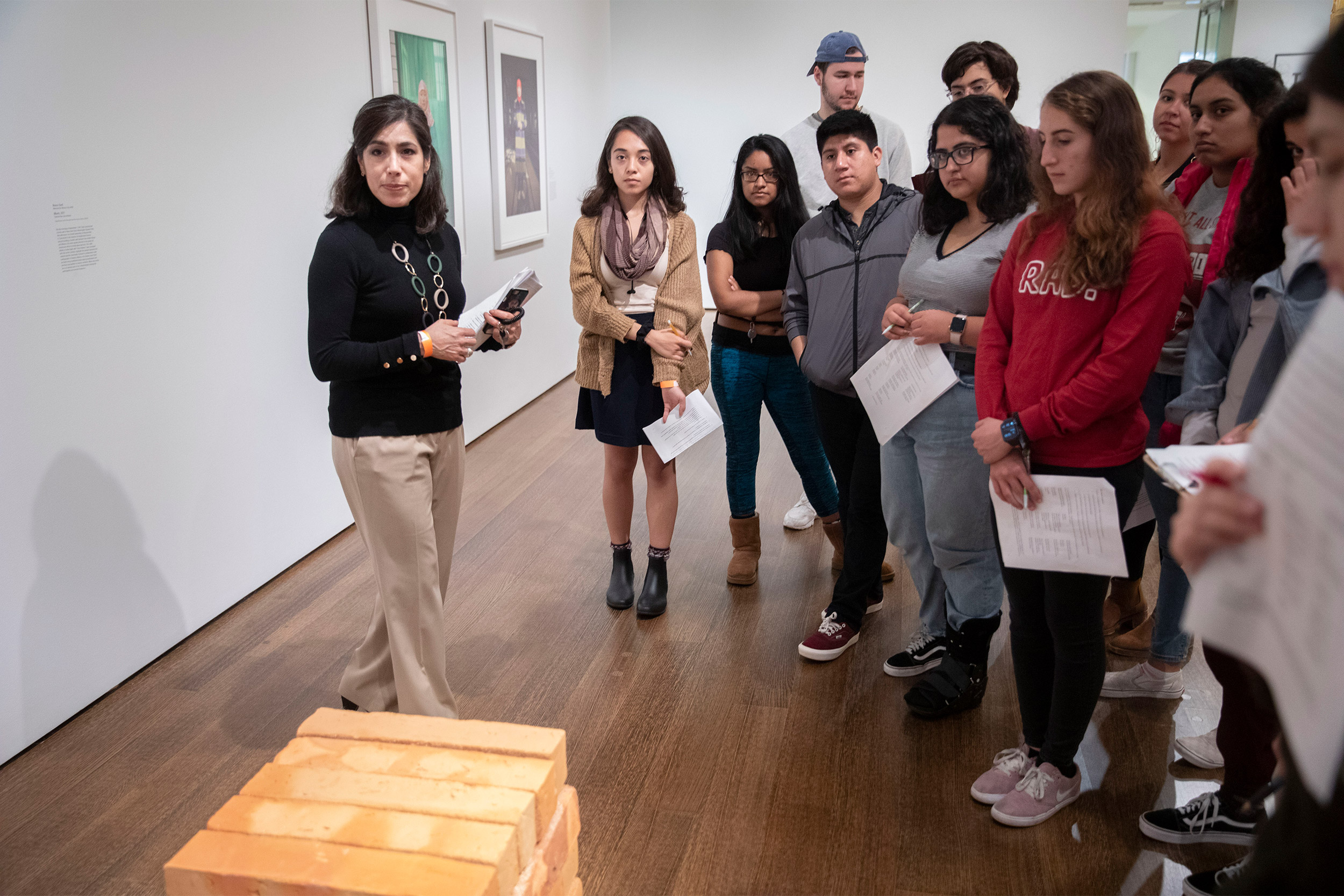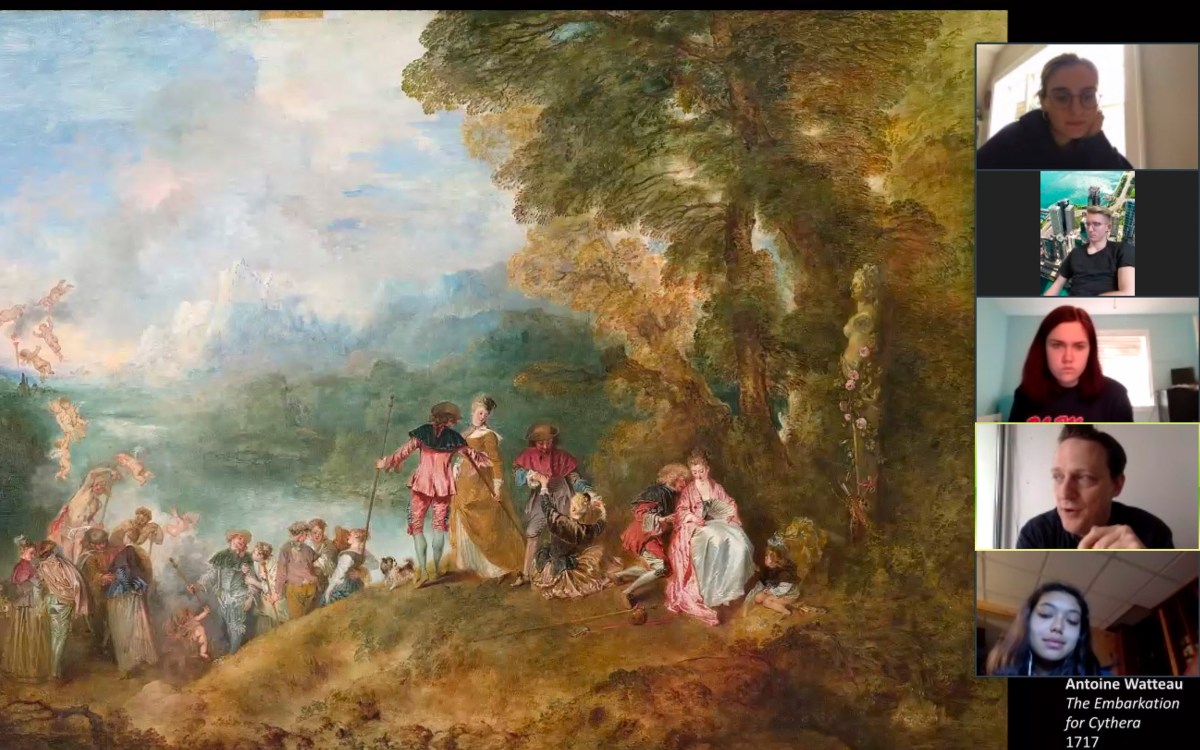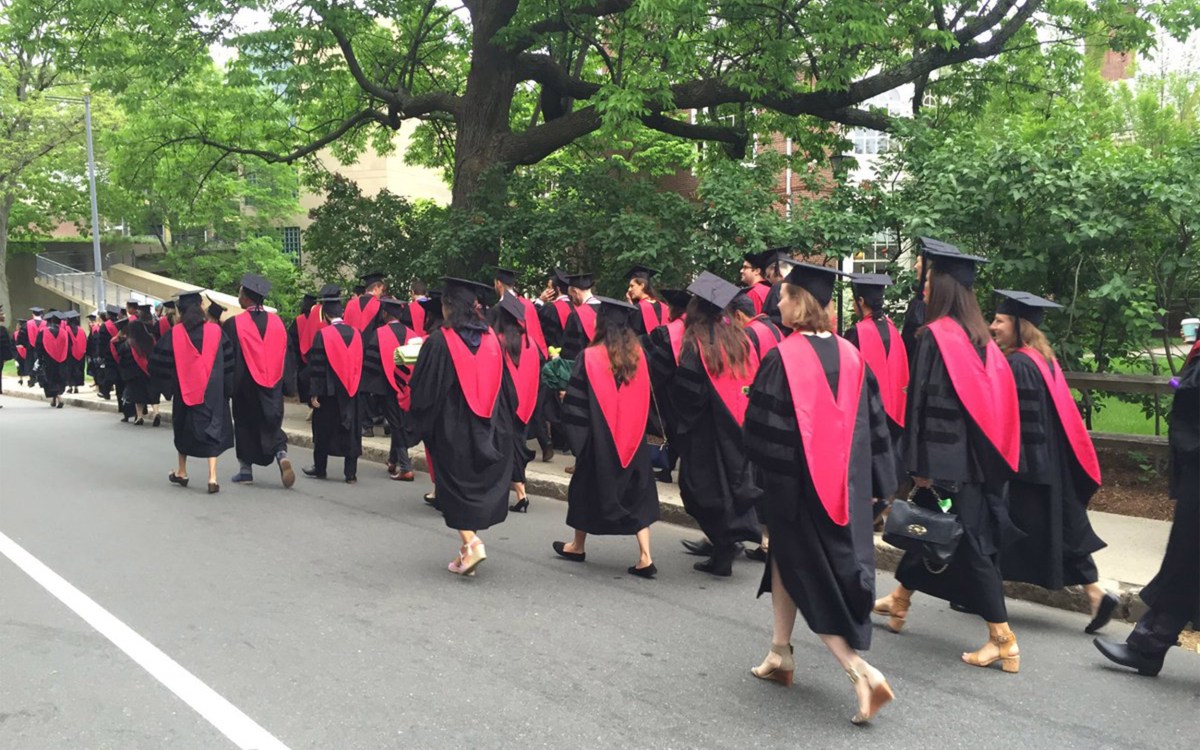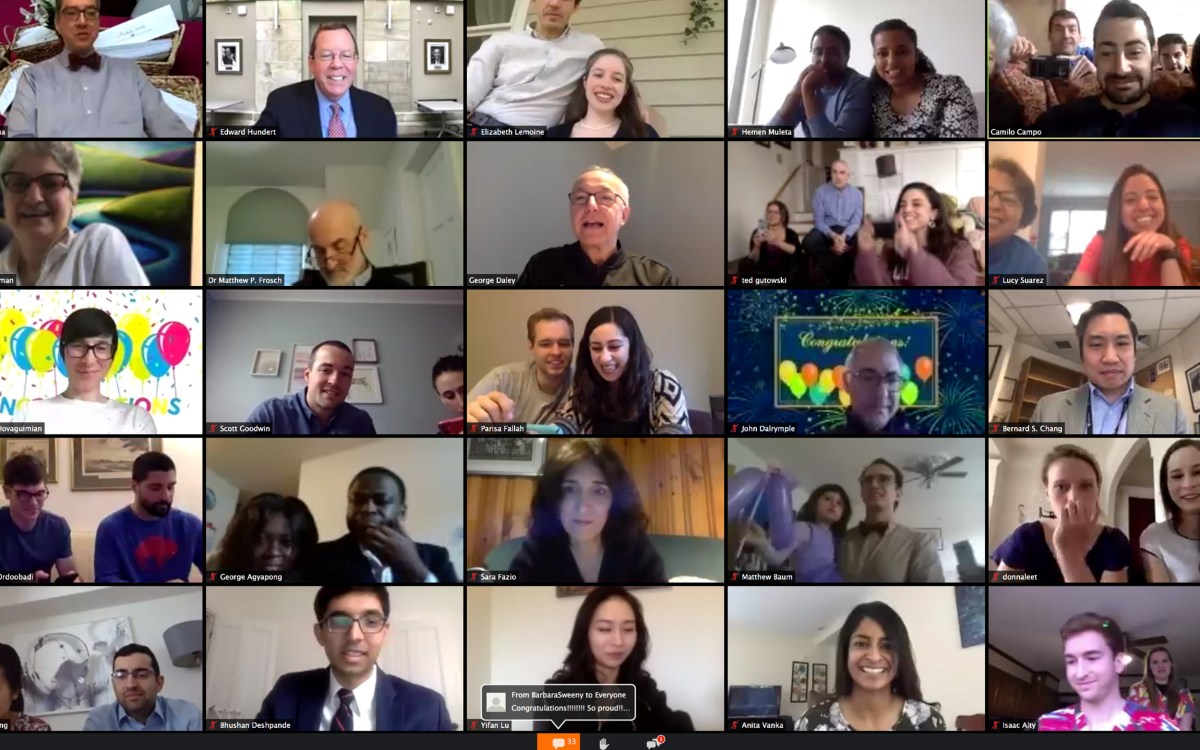
Maria Luisa Parra-Velasco teaching class pre-COVID-19.
Kris Snibbe/Harvard file photo
For professors who have taught at Extension School, Zoom is an old friend
Division of Continuing Education’s expertise in online learning has helped to lift College’s transition efforts
Four years ago, Harvard Extension School officials asked senior preceptor in Romance languages and literatures María Luisa Parra-Velasco to teach an online version of her popular course on artist Frida Kahlo using Zoom, then a little-known video-conferencing platform.
At first, Parra-Velasco was reluctant because she didn’t want to miss the face-to-face contact with students, but eventually she gave in. And now that the College has moved classes online for the rest of the semester she’s glad she did, particularly since much of the teaching will be done over Zoom.
“It was great to see the students again,” she said after meeting with students in her “Spanish in the Community” class via Zoom on Tuesday. “It’s not the same as an in-person class, but everybody was engaged and eager to participate. I’m glad the Extension School asked me to do an online course four years ago. Right now, it certainly has served me a great deal.”
Parra-Velasco is among a large number of Harvard faculty who are benefiting from having worked with the Division of Continuing Education (DCE), a unit of the Faculty of Arts & Sciences, which offers nearly three quarters of its courses, about 900 offerings, that can be taken online, mostly through the Harvard Extension School. Because more than half of the Extension School instructors are Harvard faculty or College affiliates, many are already familiar with Zoom.
It should come as no surprise.
Since it was founded in 1910, the Extension School has been a place for experimentation and innovation, said Henry H. Leitner, its interim dean and chief innovation officer. An early adopter of technology, the Extension School began offering online courses in 1997.
The first online courses were lectures captured on video, and as digital learning evolved, the School has continued to invest in new technologies. In 2009, it began teaching courses using a web-conference platform called Elluminate Live, which was replaced by Zoom in 2016. Each semester, the School offers about 350 Zoom-based courses.
“We’ve been doing online learning for a long time,” said Leitner, who teaches computer science courses both at the College and the Extension School. “And we’re happy to share our experience with online teaching and learning and extend a helping hand to Harvard more broadly.”
“It gets easier. Once things settle in, it really becomes about the students and not about the actual platform. Teaching online is not so different than teaching in a classroom.”
Adrienne Phelps-Coco
In fact, DCE staff shared recommendations on how to teach online, build community in online courses, set up help desks, and monitor Zoom sessions with the Harvard Initiative for Teaching and Learning Consortium.
Experience with the technology helps with the pedagogy, but it’s also useful when it comes to advising people, most commonly about frustrations with the learning curve. DCE staffers know that most Extension School instructors who have used Zoom for their online classes have difficulties in the beginning, but after about two weeks the majority report being pleased with the new technology. A professor who teaches a big lecture class and tried Zoom for an Extension class said he loved it because he could see his students as if “all of them were in the front row.”
“It gets easier,” said Adrienne Phelps-Coco, executive director of teaching and learning at DCE. “Once things settle in, it really becomes about the students and not about the actual platform. Teaching online is not so different than teaching in a classroom.”
Both Leitner and Phelps-Coco feel optimistic about the College’s move to online learning and look forward to its potential impact on the future of online instruction. “It is an unprecedented situation in online learning,” said Phelps-Coco. “And this is something that’s happening on a global scale that has never happened before; to be able to keep education going during a time of massive disruption. And that’s pretty extraordinary. Even if it’s not perfect, it’s still amazing.”
For Ivy Livingston, who teaches Latin, both at the College and the Extension School, the main concern was keeping students engaged throughout the two-hour class period. In her regular class, she often has students work in groups or participate in quizzes or reading aloud activities, but she looks forward to learning from the experience of teaching online.
“I’m kind of excited about teaching online and I’m looking forward to trying new tools,” said Livingston. “I’ve been asked by the Extension School to teach Latin online, and I’ve always said, ‘No, no, no.’ Now that I’ve been forced to do it, I’m eager to see how it works because I’d love for more people to take Latin, and if offering an online option is the way, that’d be great.”
As for Parra-Velasco, already having experience with Zoom has given her a hand up. Instead of worrying about technical difficulties, she is more focused on adapting her course online, reducing the amount of reading and redesigning class activities. Instead of sending students to practice their language skills in community organizations in East Boston and Dorchester, now she’s asking students to write reports on Spanish-speaking online community groups.
Of her first Zoom class at the College, Parra-Velasco had only one complaint.
“It was hard to be sitting down while teaching for three hours,” she said. “Next time, I’ll be standing up.”







